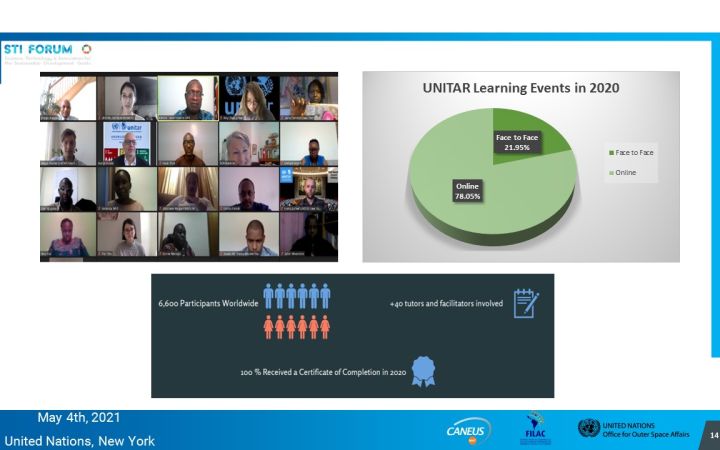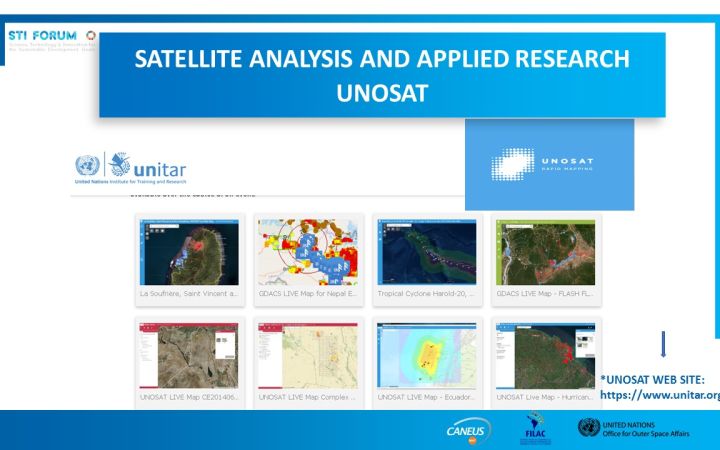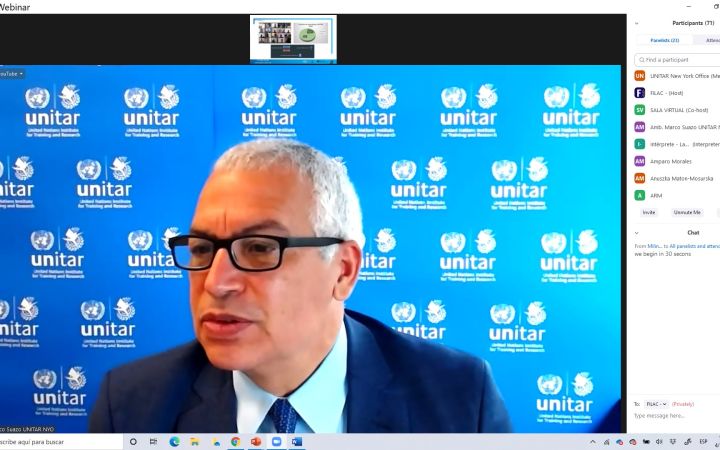May 4, 2021, New York, USA.- The Head of the UNITAR Office in New York, Mr. Marco Suazo, participated in the side event entitled “Building an Effective Way Forward for Indigenous Peoples to Participate and Contribute with their Knowledge and Experience” in the framework of the 6th Multi-Stakeholder Forum on Science, Technology and Innovation for the SDGs.
The event was organized by CANEUS, Fondo para el Desarrollo de los Pueblos Indígenas de América Latina y El Caribe (FILAC), and the United Nations Office for Outer Space Affairs (UNOOSA) in which around 70 participants from different regions, including representatives from governments, private sector, and civil society, listened to the views of the invited panellists on the inequities, marginalization, and exclusion that Indigenous Peoples experience in terms of access to science and technology.
Mr. Suazo highlighted the benefit of the use of technology for education, which allows Indigenous Peoples to study at a distance, avoiding their mobilization in areas that are even precarious. As an example, he emphasized that only in UNITAR New York in 2020, 6,600 participants benefited from virtual training. In addition, he added that Governments must provide the necessary tools, methodologies, and translators to help Indigenous Peoples receive education according to their natural resources and optimizing their wealth.
Other perspectives were shared during the three segments of the program, where panellists from the Permanent Mission of Mexico, Indigenous Intercultural University, University of Saskatchewan, UNEP, UNOOSA, spoke about the challenges, barriers and policy issues for the integration of knowledge, as well as the implementation mechanism that should be used to achieve the objectives. Towards the result, the side event sought to obtain a summary of technical and political issues that would lead to solutions based on emerging and viable science and technology for Indigenous Peoples.
As part of his intervention, Mr. Suazo referred to UNOSAT, UNITAR's operational programme that provides analysis with satellite images during humanitarian emergencies and natural disasters, with the ability to facilitate reports and data for direct and inclusive actions. The use of technology allows UNOSAT to have a source of satellite images at hand to study exact territories and locations affected by disasters anywhere in the world. United Nations agencies, government agencies, international and regional organizations, humanitarian organizations, and the International Red Cross and Red Crescent Movement can request this support for the benefit of Indigenous Peoples.
This successful event further explored the desirability of using technology to access educational materials and transform traditional education into a modern one by removing physical barriers.
To conclude, Mr. Suazo emphasized that all actions must be framed in respect of the human rights of Indigenous Peoples, as well as providing them with security while respecting their lands and resources, helping to revitalize their economies and educational structures.




